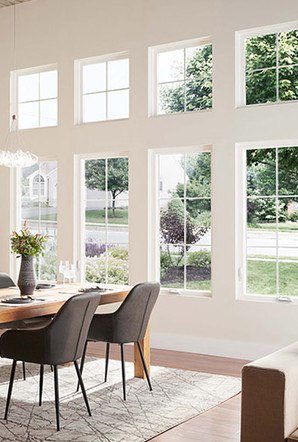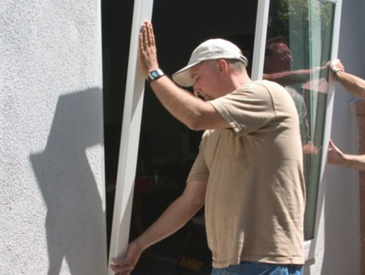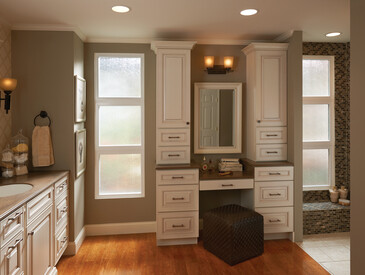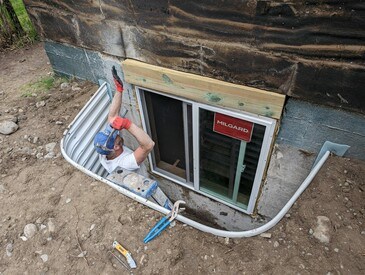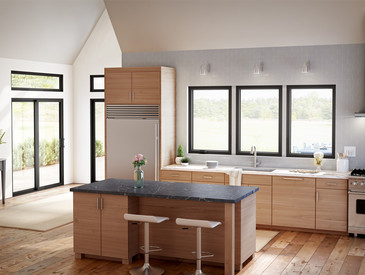1. First, find a contractor that has experience doing the job. Find professional contractors, ideally with Installation Masters™ training, through a variety or resources including American Architectural Manufacturers Association (AAMA), the National Association of the Remodeling Industry (NARI). Get a recommendation. Word of mouth is still the most powerful recommendation.
2. Get recommendations from family, friends and neighbors. You can also research online reviews from trusted databases such as Angie’s List and the Better Business Bureau.
3. Finally, interview your potential contractors to narrow your selection. You want to feel comfortable with the professional working in your home.

1. How long have you been in business?
A contractor who has been in business a long time isn’t necessarily better than one who’s been in business just a year, but it does show they’ve been able to make a living at it.
2. Who will be assigned as project supervisor for the job?
This is a good question to ask, because often the person who works with you on the bid for the project is not the person you work with once the project begins. You might ask to meet the project supervisor.
It’s good to get an idea of how big of a crew will be doing the job. Contractors work in different ways. Some have full-time employees, which is an indication they like the workers well enough that they hire them and that they have enough business to keep their employees busy. On the other hand, some contractors like to work lean and depend on subcontractors. If so, find out if they have long-term relationships with their subcontractors. The best contractors have dependable subcontractors they call on, job after job.
4. Does your company carry workers compensation and liability insurance? Is your company licensed?
If licensing is required in your state, also ask if the contractor is licensed and call to verify compliance. Not all states offer or require licensing.
5. What is your approach to a project such as this?
This is a good question to ask a contractor, because it’s somewhat open-ended and gives them a chance to explain their working process.
6. How many projects like mine have you completed in the past year?
Everyone likes to hire experience. After all, we all learn from experience. The more you have, the more competent a person or firm is. So be upfront and ask.
7. May I have a list of references from those projects?
It’s a good idea to check recent references. After all, any contractor is only as good as the last project he or she has completed.
8. What percentage of your business is repeat or referral business?
This is a good question to ask a contractor who specializes in replacement windows. Often people have a portion of their windows replaced and then more at a later date. Hiring the same contractor for the second half of the work indicates they were satisfied with the initial work.
9. Are you a member of a national trade association?
This is not a make or break question, but it does show commitment to the craft to be a member of a national trade association or other trade organization.
10. Have you or your employees been certified in remodeling? Have you had any special training such as Installation Masters™ training?
Certification can be an important indication that a person takes pride in their work and wants to be recognized for their capabilities. It’s an indication of true professional caliber and concern for excelling in their field.

1. When can you start the installation? When will you be finished?
Don’t be shy about asking for a start and finish date. In fact, you might want to ask for extra assurance on both and what type of things might prevent the contractor from starting and finishing on the specified dates. If you’re hoping to have the windows installed and the project finished before a family event or vacation, be very clear with the contractor why this date is important to you.
2. What time will you knock on my door each morning? What time will you quit for the day?
Most people like a regular schedule they can plan on. See if your contractor has a particular start and finish time each day. It will help you adjust your daily routine.
3. Will you be working consecutive days until the job is done?
This can be an important question. Sometimes contractors work on several jobs at once, returning to one when the materials are ready, while the other one is in a waiting mode for their materials or a particular subcontractor. Some contractors, however, are very focused and get a job done 1, 2, 3. Find out how a particular contractor likes to work and decide if that will work for you.
4. Do you clean up daily?
If you’re going to be living through the project, you don’t want to deal with a messy work site—after all, it’s your home. So let your expectations be known in terms of keeping the work areas tidy and contained.
Do you take care of everything? Or will I have to do some touching up or painting?
This is an important question to ask with a window replacement project. At a minimum, a contractor should remove the existing windows, install the new ones, clean up and dispose of the old windows and wash the new windows. Be forewarned, though, that replacing windows can require removing and reinstalling trim and can sometimes even impact the wall paint around the window opening. Don’t assume a contractor is going to leavtor. Even better is having some of the original paint on hand.
6. How much will it cost?
Obviously, you want a bid. Be careful to make itemby-item decisions based on value and quality, not just price. Be sure to ask if there are any contingencies in the bid and what type of things might result in cost overruns. Contractors installing windows can’t anticipate everything they might run into but you can ask for a ballpark estimate should they find dry rot when removing old windows.
The Contract
A well-written contract is essential to preventing costly mistakes or additions to the scope of your project. It is also a critical step in maintaining your budget. Many contractors require a signed contract before starting work. Be sure the contract covers everything you have talked about with your contractor. Pay careful attention to how unexpected circumstances, such as dry rot, will be handled and priced.













